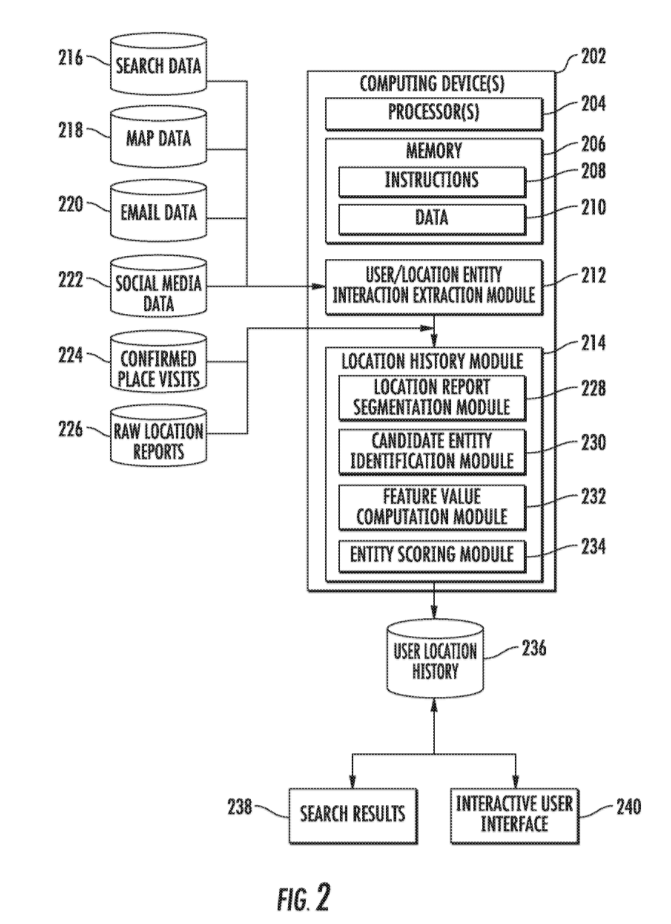Why entities may power the future of location-based data
Businesses with physical locations need to strengthen their entities, says Columnist Adam Dorfman -- doing so helps Google track customers and strengthen your findability.
Over the past decade, Google has continued to increase the amount of personal data they collect from people querying information or supplying data to them.
A story on Quartz brought this practice to light last year when a researcher discovered Google tracking location information from Android devices even if they have location services disabled:
[blockquote]Since the beginning of 2017, Android phones have been collecting the addresses of nearby cellular towers — even when location services are disabled — and sending that data back to Google. The result is that Google, the unit of Alphabet behind Android, has access to data about individuals’ locations and their movements that go far beyond a reasonable consumer expectation of privacy. Quartz observed the data collection occur and contacted Google, which confirmed the practice … By the end of November 2017, Google said, Android phones will no longer send cell-tower location data to Google…[/blockquote]

It would behoove business owners to closely monitor Google’s evolving practices for location tracking and adapt to Google’s actions so when people conduct “near me” searches, the likelihood of their business appearing in the data returned is increased.
Google relies on the latitude/longitude coordinates of a person and the places around them when tracking a user’s location. Users of Google devices and software can disable Google’s ability to track their location, but Google argues it’s better for people to allow themselves to be tracked.
Some examples of how knowing a person’s location can help Google provide a better user experience include:
- Location-based search results when someone does a search.
- Personalized recommendations for places to visit based on a user’s personal timeline.
- More accurate navigation instructions on Google Maps.
- Better location-based data, such as traffic predictions for one’s commute.
For businesses, distance from the searcher is one of the factors Google uses when ranking a business in local search results.
As Google notes, distance means “how far is each potential search result from the location term used in a search? If a user doesn’t specify a location in their search, Google will calculate distance based on what’s known about their location.”
Think like an entity
While Google recommends that businesses maintain their Google My Business pages to ensure that their locations appear in search results, a smarter way to think about your business presence these days is to think of it as Google does — an entity.
An entity is a collection of topical information Google reports on in one convenient search result. Search for “coffee near me,” and Google will pull information from a business’s corporate website, Google My Business pages, Yelp reviews and many other sources to consolidate probable answers for Dunkin Donuts, Peet’s Coffee, Starbucks and so on.
Most interestingly, a patent Google filed in January suggests Google may be moving away from using latitude/longitude to track a person’s location and instead is relying on the entities of nearby locations. From the patent:
[blockquote]a number of social media mentions associated with the location entity being valued; a number of check-ins associated with the location entity being valued; a number of requests for directions to the location entity being valued; and/or and a global popularity rank associated with the location entity being valued.[/blockquote]

Google will provide personalized, location-based search results based on a person’s past interactions with the entity, such as the number of times a person might have checked into a location on social media, which Google draws on to build a business entity.
Google would have good reason to act on its patent. Latitude/longitude as an identifying signal has a number of limitations. For example, latitude/longitude-based data does not do as good a job of tracking businesses that exist in multistoried buildings. In addition, storing, accessing and normalizing data based on the endless latitudes/longitudes generated by Google users is conceivably much more difficult than using data tied to entity locations.
Why? Because people are constantly changing their location, mostly as they travel from one destination to another. While knowing the steps between locations could be very useful for a business that creates products related to driving directions, such data is irrelevant and noisy when Google delivers search results based on a location’s popularity. Instead, by tracking people based on the search signal strength of nearby locations, Google can potentially provide a more accurate and rich location-based search result.
Where is Google going?
Based on the direction that Google appears to be headed, businesses with physical locations need to strengthen their entities to ensure Google is tracking when customers are visiting their places of business. I recommend that you continue to build up your presence everywhere people live in the digital world, including but not limited to your website.
Put another way, bolster your identity across the scope of location-based information that Google draws upon to build your entity. For instance:
- Shore up your home base. Your website, socials, principal listings and data appear in store locators if you are part of a national brand. Regularly check the accuracy of your location data and how well your content describes your location via text and images. When your principal sites are accurate and descriptive, your entities are built upon a stronger foundation.
- Make sure your location data is accurate and shared with the data aggregators. Aggregators such as Neustar and principal publishers such as Apple, Bing, Foursquare, Google and Yelp amplify your data to all the apps and listings that serve up search results. These data amplifiers will spread your location data where it needs to be for Google to build a comprehensive entity.
- Mind your identities and attributes. The basic foundational location data and the variable data — such as whether your location offers free WiFi – create a richer data set for Google to track to build your entity
- Claim and manage your Google My Business (GMB) listing. Google will typically rely on your GMB as the foundation for your business entity, as it makes sense for Google to give preference to the data on its own turf.
Google’s reliance on entities to track location data is not certain. But no matter what Google does, bolstering your entities is good for your findability as entities are shaping location marketing.
Google is giving us one more reason why.
Opinions expressed in this article are those of the guest author and not necessarily Search Engine Land. Staff authors are listed here.
Related stories
New on Search Engine Land
